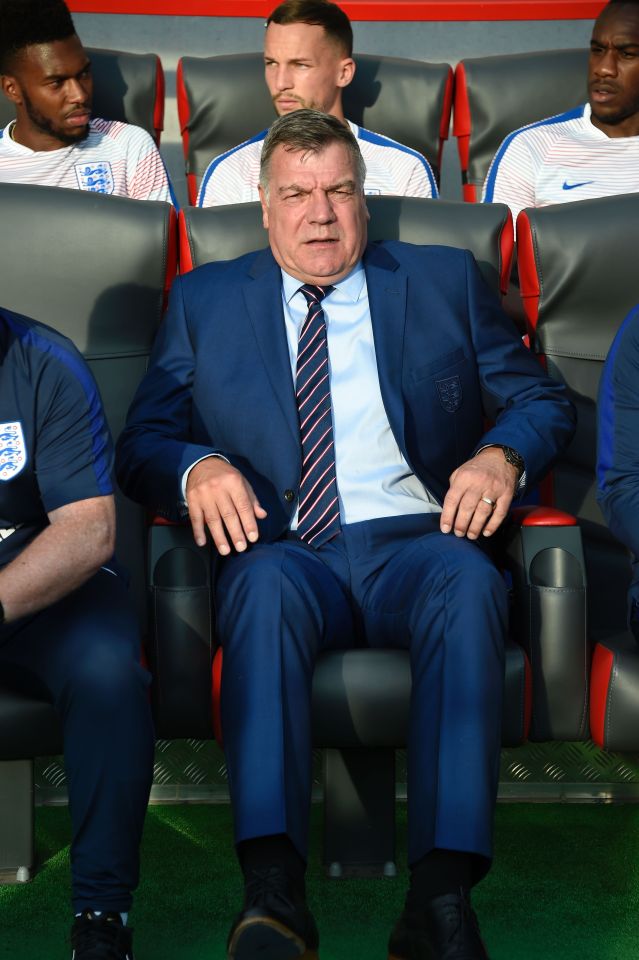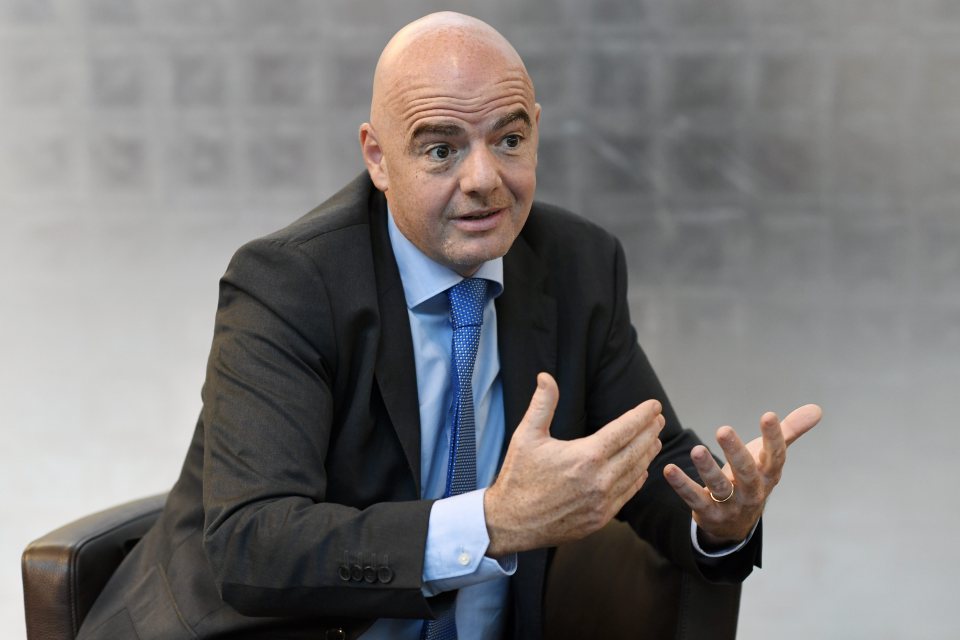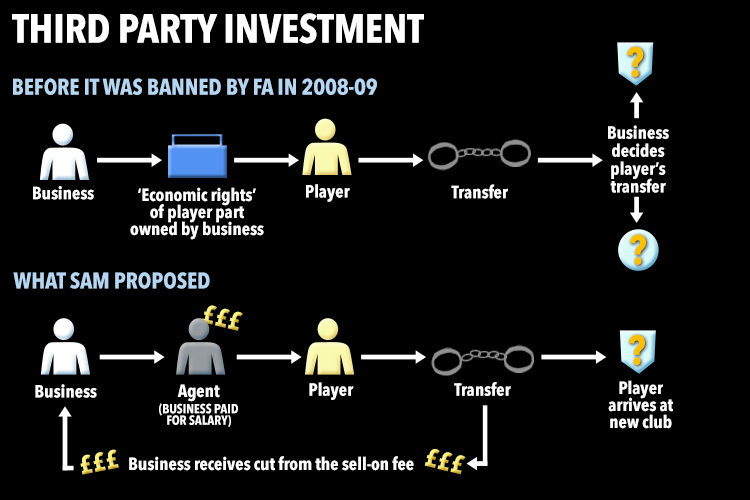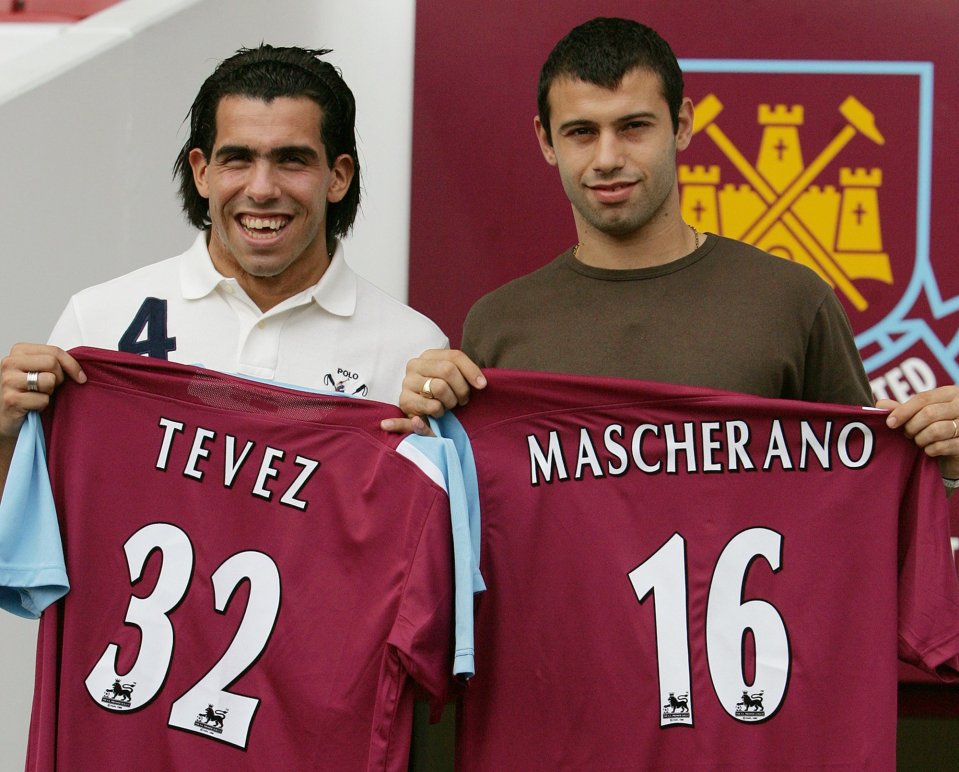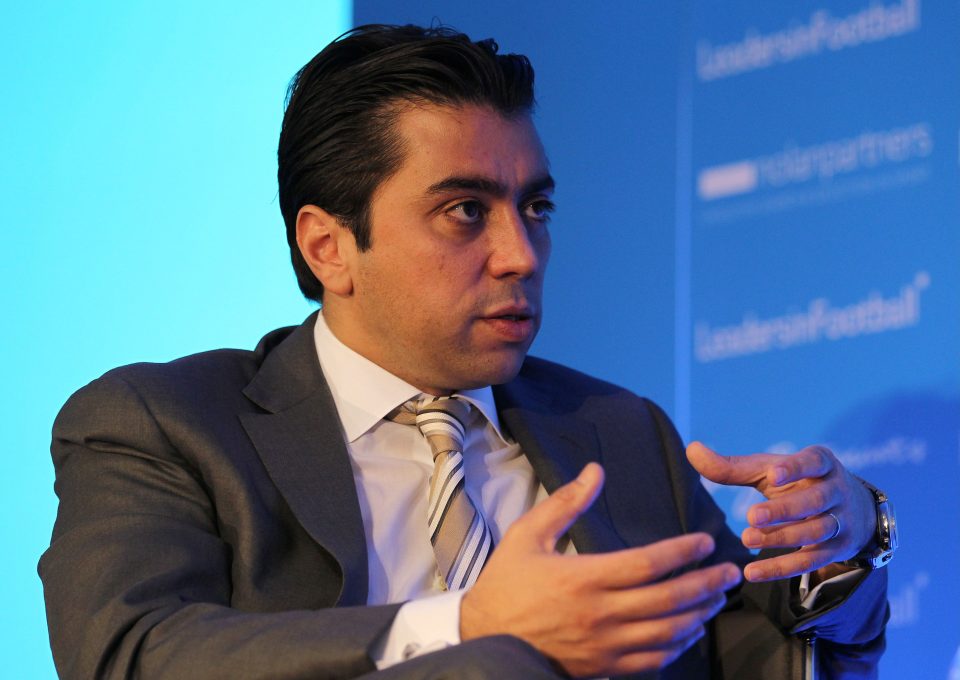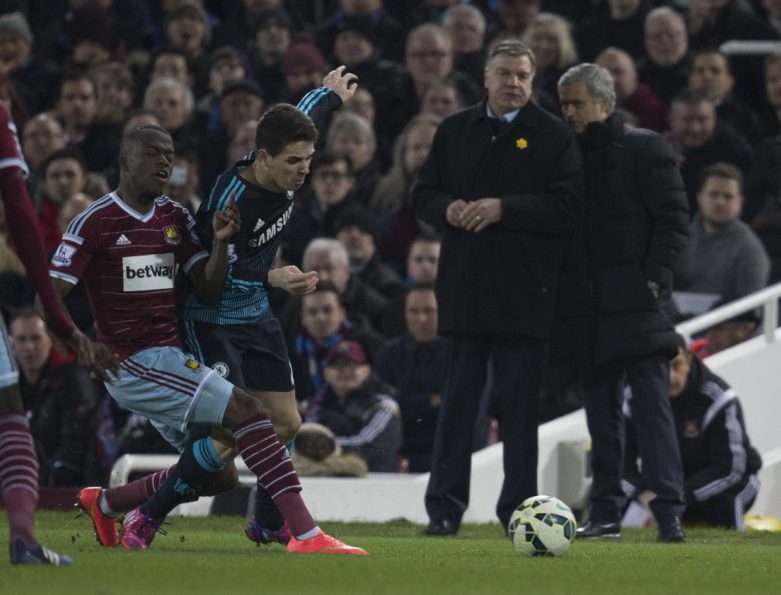Sam Allardyce: What is third-party ownership in football and why is it so controversial?

ENGLAND manager Sam Allardyce has been caught on video telling a fictitious businessman how to get around the controversial issue of third-party ownership of footballers.
Banned in 2008 by the FA and outlawed by world governing body FIFA in April last year, the process allows businesses to "own" the economic rights of players.
There have always been concerns that it compromised the integrity of the game, as the third party could profit whenever a player was sold - but Allardyce told the Daily Telegraph undercover reporters that circumventing the issue was "not a problem".
It is a tricky issue and one which SunSport breaks down for you now....
What is it?
Third-party ownership has been described as "modern-day slavery" by some of the most senior figures in football, including former UEFA president Michel Platini - while new FIFA president Gianni Infantino has also been hugely critical.
It in essence allows a company or an agent to own all or part of a stake in a footballer, while the football club itself does not own him, as is tradition.
Therefore do not benefit from transfer fees every time the player is sold.
So it is in the interests of the third party to sell the player as often as possible to generate as much money from transfers as they can - essentially dehumanising the footballer involved.
Where is it popular?
TPO is a commonplace practice mainly in South America, where common for agents and investors to become involved with clubs and players.
They tend to pay money to the club for a percentage of the player's "economic rights", while occasionally they buy a player's contract, becoming free to put the player at a club of their choosing until such a time as the player's value rises, allowing them to move him elsewhere and sell a percentage for profit.
The practice has also been widely-used in parts of Europe, in particular Portugal, Spain and Russia.
related stories
Have I seen it before in the UK?
The unethical practice hit the headlines in 2007 over Argentina stars Carlos Tevez and Javier Mascherano at West Ham who joined from Brazilian side Corinthians.
Signed by the east London club the year before, it emerged the club had breached Premier League rules as economic rights of both were part-owned by a London-based fund, led by agent Kia Joorabchian.
TPO wasn't outlawed at the time, but the Hammers were found guilty of acting improperly and withholding key documentation over the ownership of Tevez and Mascherano.
The Premier League ruled the third-party owners had the right to decide whether they would move to a new club, and for what fee.
This was a breach of existing rules banning third parties from having influence over the transfers of players and the club was hit with a £5.5million fine.
Is there an argument for it?
Some say TPO enables clubs to sign players who would otherwise prove too expensive, thus contributing for a fairer game on the pitch.
While particularly in Portugal, the system allows clubs there to bring in players from South America, assuming less risk than if they were purchasing the players outright.
From there they can develop the player and be involved in the profit-making if and when they leave for a much bigger fee.
Has Big Sam been involved with TPO before?
Yes, but there is no suggestion of any wrongdoing.
While in charge of West Ham, Enner Valencia was signed following the 2014 World Cup- but the Ecuadorian forward was not fully owned by his club, Mexican side Pachuca.
That was ended by the Hammers when they paid £12million to take the forward to Upton Park, and of course this all took place before the FIFA ban in 2015.
What are the loopholes Sam was alluding to?
Despite the worldwide ban, agents have found loopholes including buying shares in a club with a view to cashing in with a cut of transfer fees netted by the club.
They also can provide a “loan” to a club which will then be repaid including “interest” from sell-on fees.
And finally, they can act as an agent in order to receive a cut from sell-on fees as “commission”.
Update: Sam Allardyce has asked us to make clear that he disputes the allegations.
> You can follow all the latest updates from this huge scandal to rock football HERE
Watch ALL the goals from the Premier League before anyone else for FREE plus all the latest news, fixtures and results and live match commentary all on the go with the new Sun Football App –


